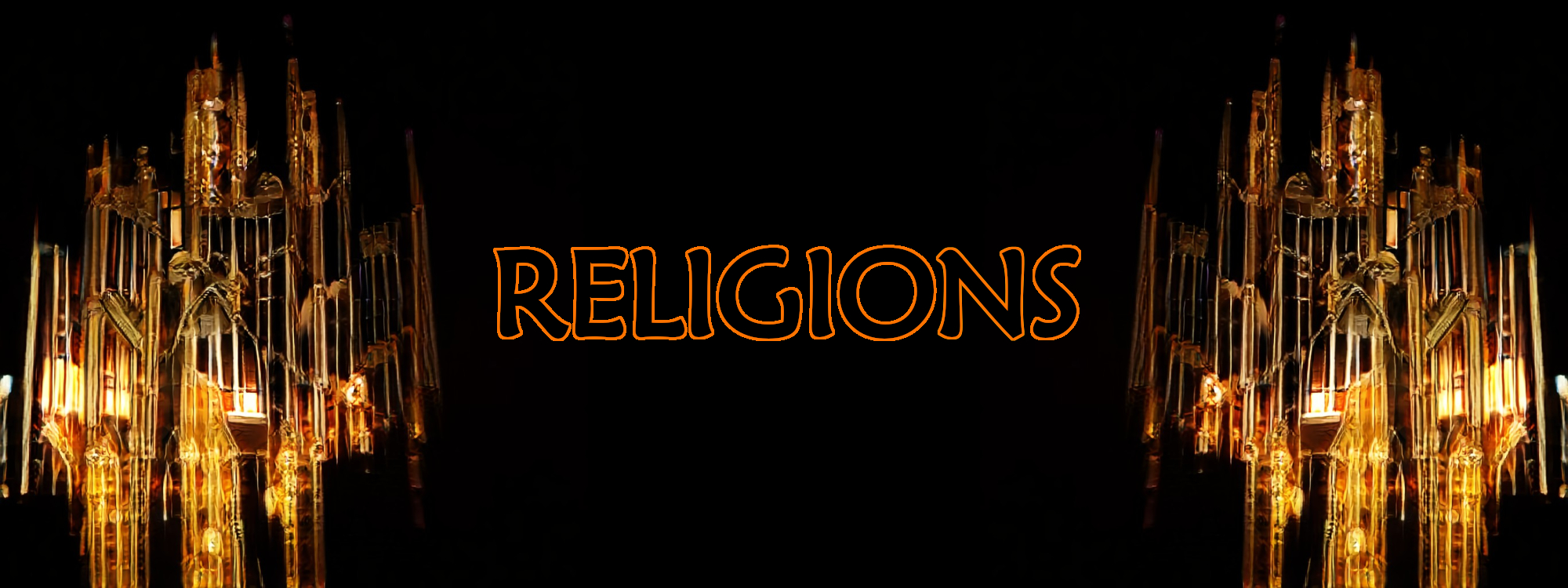Way of the Four Winds
The Way of the Four Winds is the national religion of Kushan.
The kushani worship their own ancestral deities known as the Four Winds -- four divine beings that according to myth and legend were once mortal Kushani but ascended to godhood by their legendary deeds. Each of these gods embody a variety of domains and aspects of kushani life.
Contents
Beliefs
Main beliefs revolve around acceptance, honor, allegiance, and seeing life as a series of trials. These teachings are mainly passed on through meetings with religious leaders and study of religious texts. Most of these religious texts come from an early era of the nation of Kushan, having been laid out as the letter of law by the Sun Empress Amaterasu during her mortal life. The single most critical holy text of the religion, however, are the Iwasura Scrolls, in which the scholar Tsunesaburo summarizes the Eternal Empress's key teachings.Tenets of faith
Unlike the widely spread Empyreal Faith, the Way of the Four Winds has no exact commandments. Rather, its holy texts are written long, analytical, and philosophical essays on the nature of mortal life and its relation to divinity. The key points of the current canonical interpretations of these texts are listed below. Honor above all. There concept of honor is central to the Way of the Four Winds. Honor is of fundamental importance to mortal existence, and the most important denominator of one's worth in the eyes of the Four Winds. One must be able to know what is true, right and moral; one must have respect for others and behave in ways that garners respect from others; one must fulfill one's obligations and keep one's oaths. The afterlife is not paradise. After death, mortal souls do not receive a reward for the good deeds they performed in life -- nor is afterlife a punishment for bad deeds. In the afterlife, a soul enters the direct service of one of the Four Winds and continues their existence of toil and trials -- under different circumstances perhaps, but by no means free of adversity and responsibilities. The gods might give their greatest mortal servants the honor of some particularly important or demanding duty. Words are oaths. Spoken word is of utmost importance to kushani. Promises given must be fulfilled lest you bring dishonor to yourself and those around you. Lies are anathema. Dutiful acceptance. Kushani are taught to accept life as it is given to them by the gods. This is related to the belief that life is a series of trials with the purpose of proving one's worth to the gods; even the most terrible adversities and times of misfortune should not be lamented, for they are the will of the gods, and all one must do in the face of such challenges is perservere. But acceptance does not encourage stagnation, for the kushani also believe in striving towards perfection. In essence, one must be content with one's lot in life, but one must strive to excel within that lot. Desertion is abomination. Religious dogma clearly states that abandoning one's fellows is entirely unthinkable and completely condemnable. This applies to all aspects of life and not only martial service. A common saying in Kushan goes: "You shall not desert those who rely on you."Worship
Prayer through meditation is the primary form of worship. Prayer is the path to communion with the gods, and this is connection is often considered private. Communality is still an important part of worship, and closely knit groups of citizens gather daily in pagodas to meet and meditate together. The Way of the Four Winds strongly emphasizes unceasing devotion to the gods. Every moment and every aspect of life is beholden to and witnessed by the gods, thus one's piety must be unceasing and one's conviction to the gods' teachings unwavering. Dutiful service is always approved of by the Four Winds and Kushani society is characterized by a strong communal spirit and a culture of working together. Charity, social bonds, companionship, and work for the common good are cornerstones of the philosophy that drives the faithful followers of the Way in their day-to-day activities.
Other names
The Way Type
Organized religion
Origin
The faith began in ancient Kushan after the death of the then-mortal Amaterasu, the first Sun Empress.
Distribution
Kushan
Relations with other faiths
Intolerant. Other religions are preached against in Kushan.
Relics and holy texts
Iwasura Scrolls (holy text)
Holy symbols
Wind chimes and compasses.
Historic characters
Tsunesaburo (founder)
The Way Type
Organized religion
Origin
The faith began in ancient Kushan after the death of the then-mortal Amaterasu, the first Sun Empress.
Distribution
Kushan
Relations with other faiths
Intolerant. Other religions are preached against in Kushan.
Relics and holy texts
Iwasura Scrolls (holy text)
Holy symbols
Wind chimes and compasses.
Historic characters
Tsunesaburo (founder)
Deities


Comments